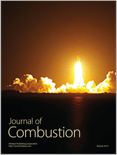
Journal of Combustion
Scope & Guideline
Transforming Insights into Combustion Breakthroughs
Introduction
Aims and Scopes
- Internal Combustion Engines:
Research on the design, modeling, and performance optimization of internal combustion engines, including studies on emissions, fuel consumption, and alternative fuels. - Combustion Efficiency and Environmental Impact:
Investigations into combustion technologies that enhance efficiency while minimizing environmental pollution, such as comparisons of different burner designs and fuel blends. - Fire Dynamics and Heat Transfer:
Studies exploring the dynamics of fire spread, heat transfer in fire situations, and the behavior of flames under various conditions. - Combustion of Alternative Fuels:
Research on the combustion characteristics of alternative fuels, including biofuels and hydrogen, and their impact on engine performance and emissions. - Experimental and Numerical Modeling:
Usage of both experimental setups and numerical simulations to understand combustion phenomena, including reaction kinetics and flame dynamics.
Trending and Emerging
- Hydrogen and Alternative Fuel Combustion:
There is an increasing focus on the combustion characteristics and applications of hydrogen and biofuels, reflecting the global push towards sustainable energy solutions. - Thermoacoustic Effects in Combustion Systems:
Research into thermoacoustic oscillations and their impact on combustion stability and efficiency is gaining attention, indicating a trend towards understanding complex interactions in combustion systems. - Energy Recovery and Waste Utilization:
Emerging themes in energy recovery from waste sources, including innovative applications for byproducts from industries such as slaughterhouses, highlight a growing interest in sustainable practices. - Advanced Burner Technologies:
Comparative studies of advanced burner designs, such as swirl and cross jet burners, suggest a trend towards optimizing combustion systems for both efficiency and environmental performance.
Declining or Waning
- Coal Combustion Studies:
Research on coal combustion, particularly in fluidized bed combustors, has seen a reduction, possibly due to the global shift towards cleaner energy sources and the decline in coal usage. - Traditional Combustion Measurements:
Conventional methods of measuring combustion parameters, such as basic temperature and pressure readings, are becoming less common as more sophisticated and integrated measurement techniques are developed. - Incineration Processes for Waste Management:
Studies focused on traditional waste incineration methods are declining as more attention is given to energy recovery and sustainable waste management practices.
Similar Journals

Journal of the Korean Society of Combustion
Pioneering Discoveries in Combustion TechnologiesThe Journal of the Korean Society of Combustion, published by the esteemed Korean Society of Combustion, is a pivotal platform that disseminates groundbreaking research in the field of combustion science. With its ISSN 1226-0959 and E-ISSN 2466-2089, this journal serves as a reliable source for both theoretical developments and practical applications pertaining to combustion technologies. As part of the thriving research community in South Korea, the journal plays a crucial role in advancing knowledge on combustion processes, alternative fuels, and emissions reduction technologies. Researchers, professionals, and students alike benefit from the journal's commitment to high-quality publications that foster innovation and collaboration within the interdisciplinary realms of energy and environmental sciences. While currently not an open-access journal, the Journal of the Korean Society of Combustion ensures that its content remains accessible to a broad audience through institutional subscriptions and partnerships, reinforcing its impact in the academic community.
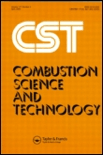
COMBUSTION SCIENCE AND TECHNOLOGY
Exploring the Dynamics of Combustion ScienceCOMBUSTION SCIENCE AND TECHNOLOGY, published by Taylor & Francis Inc, is a pivotal journal in the fields of Chemical Engineering and Chemistry, with a robust history spanning from 1969 to 2024. With an established impact factor and a strong reputation reflected in its Q2 ranking in both Chemical Engineering and Chemistry, this journal serves as an essential resource for researchers and professionals dedicated to the intricacies of combustion processes and energy technologies. The journal also holds commendable rankings in Energy Engineering, Fuel Technology, and Physics and Astronomy, showcasing its interdisciplinary relevance. While currently not an open-access publication, it offers a wealth of knowledge through its meticulously peer-reviewed articles, which are crucial for advancing understanding and innovation in combustion science. With a commitment to promoting rigorous research and fostering scholarly communication, COMBUSTION SCIENCE AND TECHNOLOGY is indispensable for anyone seeking cutting-edge insights into combustion phenomena and their applications in various engineering fields.

Fuels
Bridging Research and Real-World Applications in FuelsFuels is a premier open-access journal published by MDPI, focusing on the multifaceted field of fuel science, technology, and applications. Since its inception in 2020, this journal (E-ISSN: 2673-3994) has rapidly become a vital resource for researchers, professionals, and students engaged in the exploration of sustainable fuel alternatives, combustion technologies, and energy conversion processes. Located in Basel, Switzerland, Fuels aims to disseminate high-quality research that not only advances academic understanding but also addresses real-world energy challenges. By embracing an open-access format, it ensures that significant findings are readily available to the global scientific community, helping to foster collaboration and innovation in the transition to cleaner energy solutions. With an emphasis on interdisciplinary research and practical applications, Fuels is poised to be a leading journal that shapes the future of energy technologies.

COMBUSTION EXPLOSION AND SHOCK WAVES
Charting New Territories in Explosions and Shock WavesCOMBUSTION EXPLOSION AND SHOCK WAVES, published by MAIK NAUKA/INTERPERIODICA/SPRINGER, is a peer-reviewed journal that has been a cornerstone in the fields of combustion science and shock wave dynamics since its inception in 1965. With a broad scope encompassing chemical engineering, energy technology, and physics, this journal plays a pivotal role in disseminating groundbreaking research that drives advancements in both theory and application. Despite its classification in the third quartile across several categories as of 2023, the journal continues to attract contributions that address critical challenges and innovations in combustion-related phenomena. Researchers and professionals across multiple disciplines are encouraged to submit their findings, as the journal provides a valuable platform for sharing knowledge and fostering collaboration. The editorial board is committed to maintaining high standards of quality and relevance, which is reflected in its ongoing influence in these interdisciplinary and rapidly evolving fields. While the journal is not open access, it offers a wealth of insights and scholarly work that is vital for both academic inquiry and practical applications. From the vibrant heart of New York City, COMBUSTION EXPLOSION AND SHOCK WAVES aims to inspire and inform, serving as an essential resource for those dedicated to understanding and innovating in the realm of combustion science.
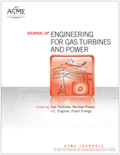
JOURNAL OF ENGINEERING FOR GAS TURBINES AND POWER-TRANSACTIONS OF THE ASME
Transforming Insights into Engineering SolutionsJournal of Engineering for Gas Turbines and Power - Transactions of the ASME, published by the esteemed American Society of Mechanical Engineers (ASME), is a leading interdisciplinary journal dedicated to advancing the fields of energy engineering, aerospace, nuclear energy, and mechanical engineering. With an impressive history dating back to 1960 and continuing its contributions through 2024, this journal boasts a Q2 ranking in multiple engineering categories, reflecting its strong impact on both academia and industry. Although not an open-access journal, it provides invaluable insights and research findings that cater to the needs of professionals, researchers, and students alike. The journal's ISSN is 0742-4795 with an E-ISSN of 1528-8919, ensuring widespread visibility in the global academic community. Indexed in Scopus, it ranks notably within its fields—21st in Nuclear Energy and Engineering and 51st in Aerospace Engineering—underscoring its relevance and contribution to critical technological advancements. Researchers in this domain will find the journal a vital resource for innovative studies, practical applications, and the latest developments related to gas turbines and power generation.

ISI Bilimi ve Teknigi Dergisi-Journal of Thermal Science and Technology
Fostering Collaboration in Thermal Science ExcellenceISI Bilimi ve Teknigi Dergisi-Journal of Thermal Science and Technology, published by the Turkish Society of Thermal Sciences and Technology, serves as a pivotal platform for disseminating cutting-edge research in the fields of thermal science, engineering, and materials science. With an ISSN of 1300-3615, this journal not only addresses critical advancements from 2008 to 2013 and 2015 to 2023, but also operates under the auspices of rigorous peer review, contributing to its reputable standing in academia. As a Q4 ranked journal in various disciplines including Atomic and Molecular Physics, Engineering, and Materials Science, it offers researchers and professionals essential insights, though it does not currently operate under an open access model. Situated in Ankara, Turkey, this journal is key to fostering collaboration and innovation among scholars, making it an indispensable resource for students and professionals eager to engage with the latest thermal science methodologies and technologies.
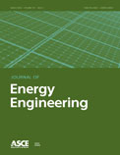
JOURNAL OF ENERGY ENGINEERING
Pioneering Insights for a Greener FutureJOURNAL OF ENERGY ENGINEERING, published by the ASCE-Amer Soc Civil Engineers, serves as a pivotal resource in the fields of civil and structural engineering, energy engineering, and nuclear energy research. With an ISSN of 0733-9402 and an E-ISSN of 1943-7897, this esteemed journal demonstrates a consistent commitment to advancing knowledge in energy systems, sustainability, and waste management. Ranking within the second quartile in several categories—including Civil and Structural Engineering and Energy Engineering and Power Technology—this journal maintains a strong reputation, underscored by its Scopus rankings that place it in the top tiers of its discipline. Accessible from 1982 through 2024, the journal provides researchers and professionals meaningful insights through rigorously peer-reviewed articles, critical reviews, and case studies that address contemporary challenges in energy utilization and infrastructure development. Without open access options, it ensures the integrity and credibility of published work, showcasing influential research that contributes to sustainable solutions in energy and environmental frameworks. Researchers, professionals, and students alike will find the JOURNAL OF ENERGY ENGINEERING an indispensable platform for exploration and dissemination of innovative ideas within the realm of energy and engineering.
Fuel
Pioneering Insights in Chemical and Power TechnologiesFuel is a premier international journal published by Elsevier Science Ltd, showcasing critical advancements and insights in the fields of chemical engineering, energy engineering, power technology, and organic chemistry. With a significant history dating back to 1922 and continuous publication from 1970 to 2025, Fuel holds an impressive position in the academic community, reflected in its top-tier rankings—Q1 in multiple categories including Fuel Technology and Chemical Engineering for the year 2023. This journal is dedicated to exploring innovative research and application of fuel technologies, driving forward the dialogue on sustainable energy solutions. Researchers and professionals alike will find Fuel to be an essential resource, providing access to high-impact articles that contribute to advancements in methodologies and applications, while navigating the complexities of global energy challenges.

JOURNAL OF THE ENERGY INSTITUTE
Pioneering Research in Energy Engineering and TechnologyJOURNAL OF THE ENERGY INSTITUTE, published by Elsevier Science Ltd, is a leading interdisciplinary journal dedicated to the advancing fields of energy engineering and technology. With its ISSN 1743-9671 and E-ISSN 1746-0220, this journal has established a prominent reputation, evident from its impressive impact factor and strong rankings across multiple categories, achieving Q1 status in fields such as Condensed Matter Physics, Control and Systems Engineering, and Energy Engineering and Power Technology. As a pivotal resource for researchers, professionals, and students alike, the journal covers a comprehensive spectrum of topics in energy, including recent innovations in renewable energy technologies, sustainable practices, and advancements in fuel technologies. Researchers are encouraged to explore its open-access options for broad dissemination of knowledge, contributing to a more sustainable and energy-efficient future. With a converged history from 2004 to 2024, the JOURNAL OF THE ENERGY INSTITUTE remains a critical platform for cutting-edge research and development in the energy sector, promoting impactful solutions to global energy challenges.
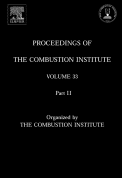
PROCEEDINGS OF THE COMBUSTION INSTITUTE
Driving Excellence in Combustion SciencePROCEEDINGS OF THE COMBUSTION INSTITUTE, published by Elsevier Science Inc, is a premier platform for dissemination of advanced research in the fields of combustion science, engineering, and related technologies. With an ISSN of 1540-7489 and an E-ISSN of 1873-2704, this journal holds a prestigious position within the academic community, as evidenced by its top-tier Q1 rankings in Chemical Engineering, Mechanical Engineering, and Physical and Theoretical Chemistry for 2023. The journal is recognized for its rigorous peer-review process and aims to publish high-quality, impactful research that drives innovation and knowledge in combustion phenomena. Researchers and professionals can engage with cutting-edge findings that address critical challenges and explore novel solutions in this vital area of study. Although it does not offer open access, its subscription model ensures wide accessibility to institutions and experts seeking profound insights into combustion dynamics.